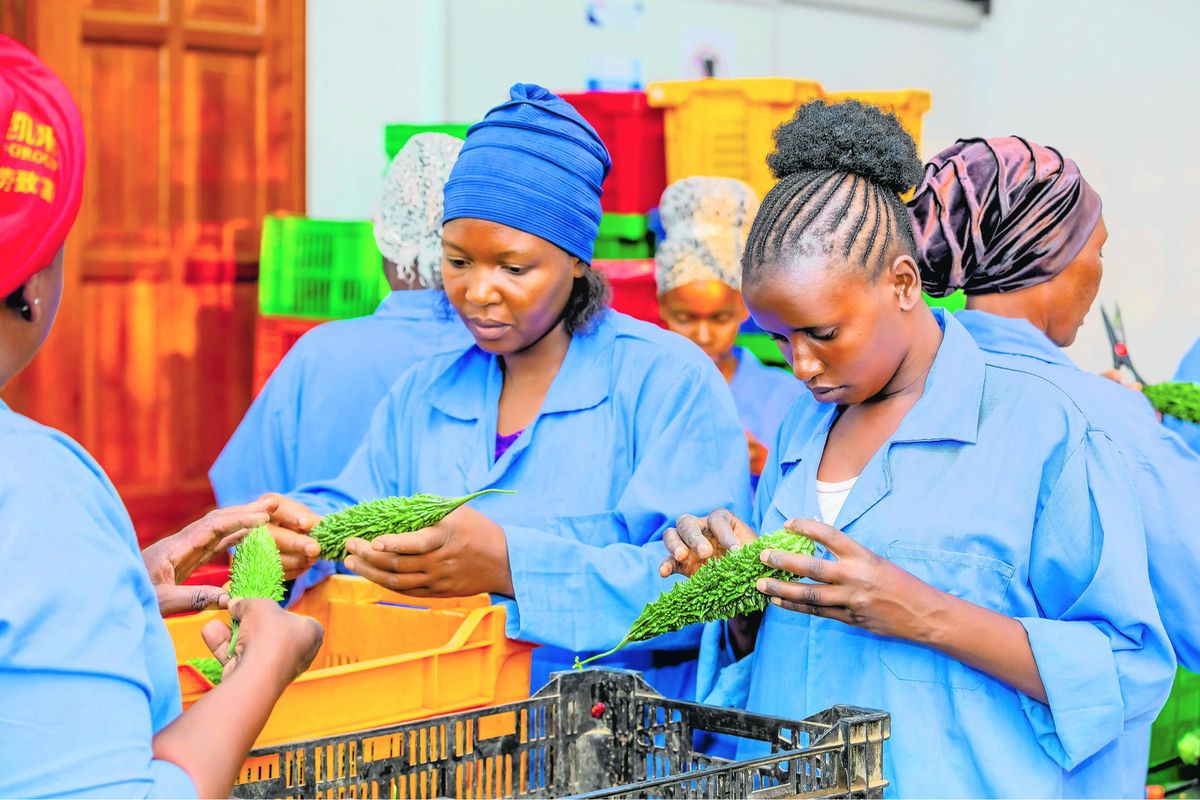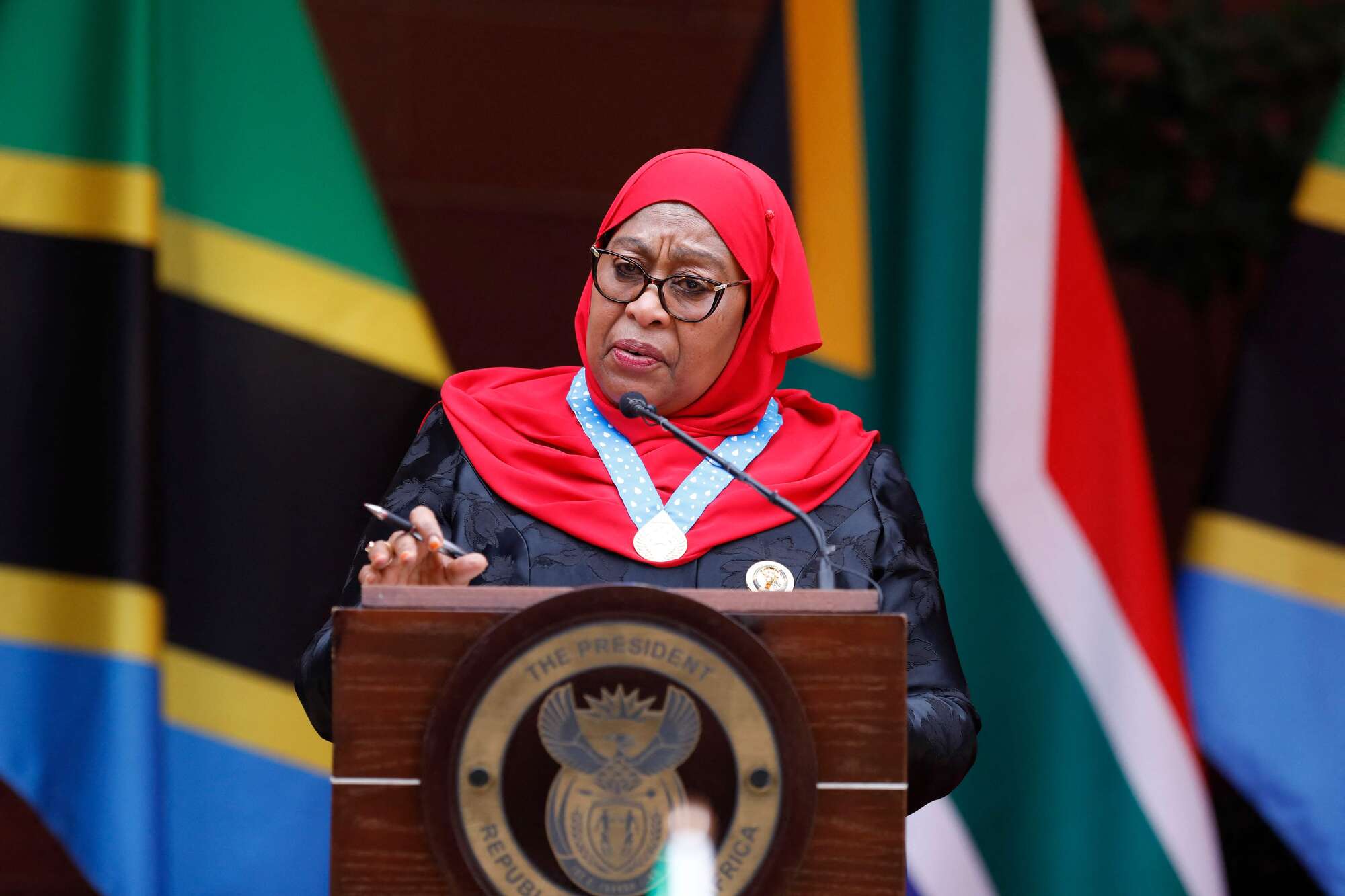
Arusha, Tanzania:
The global market for horticultural products has expanded significantly in the past two decades, increasing demand for agricultural products to satisfy the growing global population.
According to Global Market Estimates, the sector is projected to grow from $20.77 billion in 2021 to $40.24 billion by 2026.
As global demand for agricultural produce increases, Tanzania is also unleashing the hidden potential of the multi-billion-dollar horticulture industry by making reforms that will eventually increase production volumes.
The country is slowly but surely becoming one of the major horticulture producers, with an annual income of $779 million.
Tanzania’s endeavour is to increase horticulture export value to $2 billion by 2030 through ongoing business reforms to create more jobs, increase productivity, and eventually commercialise the entire horticultural value chain.
Statistics from the Ministry of Agriculture show that the vibrant industry has been growing at an 11 percent rate annually, offering a glimpse of hope to the fast-growing sector with a growth rate of only 4 percent per annum.
But to achieve the 2030 goal, the government of Tanzania, along with key stakeholders, including the International Finance Corporation (IFC), is taking initiatives to spur the agribusiness economy.
A member of the World Bank Group, IFC is the largest global development institution focused on the private sector in developing countries, including Tanzania. It offers investment, advisory, and asset-management services to encourage private-sector development in less developed countries.
The largest global financial institution applies its financial resources, technical expertise, international experience, and innovative thinking to help partners, including Tanzania, overcome financial, operational, and other challenges.
Thanks to the IFC’s implementation of the so-called Business Enabling Environment (BEE), legal and regulatory reforms have been undertaken in the agribusiness sector.
The reforms address Blueprint identified regulatory and administrative barriers to the horticulture sector, which include the regulatory process and compliance requirements for importation, registration and supply of Biological Control Agents and Pesticides with the objective of rationalizing the necessary procedures and reducing the time and cost incurred by businesses.
The aim is to ensure access to quality and affordable inputs to farmers, which will contribute towards increasing on-farm production and productivity of agricultural crops and enable farmers increase their incomes. Reducing compliance costs in the agriculture sector ensure timely availability of inputs to farmers.
In 2018, IFC undertook a comprehensive analysis of the Tropical Pesticides Research Institute Act, 1979 and the Plant Protection Act, 1997 with the aim of reducing duplicative provisions among the two laws. The analysis recommended a need to put in place a Plant Protection Authority to streamline the inconsistencies and conform to international obligations which call for the establishing of a National Plant Protection Office.
In 2020, the Government established the Tanzania Plant Health and Pesticides Authority (TPHPA), which complies with the International Plant Protection Convention (IPPC) requirements on sanitary and phytosanitary measures.
Under the TPHPA, local exporters will no longer be required to take their produce elsewhere for certification after the local authority is mandated by the Global Gap that sets world market standards and requirements.
After the reforms, the Plant Health Section (under the Ministry of Agriculture) and Tropical Pesticides Research Authority (TPRI) were merged by the government to form one Authority (TPHPA) for national regulation of plant health and pesticide matters.
Two years later, the IFC collaborated with the Food and Agriculture Organisation (FAO) to provide technical support in developing Plant Health regulations with a team of Plant Health officers from TPHPA, legal officers from the Attorney General’s Office, and the Legal Unit of the Ministry of Agriculture.
The teams considered 12 recommendations made by the IFC. Three validation workshops were held in Dar es Salaam, Mwanza, and Arusha, bringing together farmers, exporters, input suppliers, and government officials to contribute to the regulation.
The Acting TPHPA Director, Dr Ephraim Njau, says that he sees a brighter future for the horticulture industry that is opening new ventures.
Among them is the opening of a new avocado market in China, whose chapter was recently signed by Her Excellency Dr Samia Suluhu Hassan, the President of the United Republic of Tanzania.
Tanzania is already selling agri-business produce in the European and African markets, penetrating the regional markets through airports, and among other borders, Namanga, Holili, Horohoro, Mutukula, and Silari, which connect with fellow Eastern and Southern African countries.
The local produce will be able to access international markets such as India, China, South Africa and Europe as they will be meeting international requirements and standards.
Through collaborative efforts with FAO, the sector will witness reforms in the reduction of roadblocks and customs clearance procedures at airports, ports and borders. It will also include the setting up of cold storage facilities at export gates and training of plant health border inspectors and plant health field staff.
After their training, they will be provided with zero-kilometre motorbikes (with GPS tracking devices) and brand-new Land Cruisers to enhance their field reporting and surveillance efficiency.
Farmers and exporters will also be provided with informative publications for their up-to-date information regarding the value chain from the farm to the market.
Mr Eric Mwesigwa, the General Manager of Greencert, established by the Tanzania Horticulture Association (TAHA) for Inspection, Certification, and Training, says that they initially called for healthy vegetable regulations to be in place to protect the local market.
But now, according to him, the governing horticulture body (TAHA), which supervises best practices of horticulture in the country, is happy to see TPHPA mandated to oversee the regulatory issues.
He says it previously took more than three years to get pesticide certification, but now it is much easier since it is accessed electronically.
The former process before TPHPA was costly as one had to pay between $150 and $300 (approximately Sh345,000 and Sh700,000) for the manual process that involved a lot of bureaucracy.
But TPHPA has reduced the cost of permit licences and certification process that includes laboratory tests borne by importers and exporters.
He says that through digitalized Agriculture Trade Management Information System (ATMIS), an exporter can quickly get a permit to transport their produce to the market.
For example, Mr Omary Mhina, the TPHPA Planning, Monitoring, and Evaluation Manager, says that an importer has to pay about $150 (per year) to THPA for their certification process of 12,000 plants.
He says the cost for doing business is much lower. For example, a person who wants to renew a commercial pesticide store licence has to pay as little as $25 (about Sh60,000) per year. The cost is twice for those starting a new business.
And the certification, according to him, is done within a short time should all the procedures be fulfilled.
Mr Mwesigwa calls on TPHPA to open more new market opportunities and develop small-scale farmers to produce high quantities and quality of the best farm produce.
He says Covid-19 travel restrictions hit exports, but now the market is open for Tanzania to sell more abroad.
Share this news
This Year’s Most Read News Stories

MGAO WA MAJI WAWATESA WAZANZIBARI
Wananchi wengi hasa katika maeneo ya Mjini Unguja, wanalalamikia ukosefu wa maji safi na salama huku Mamlaka ya Maji Zanzibar ikikabiliwa na changamoto ya ukosefu wa ujuzi na wataalam katika masuala ya uandisi wa Maji na fani nyengine.Continue Reading
John Okello: From Zanzibar revolution icon to street beggar
In the final episode, we look at Okello’s ban in Tanganyika, rejection in Kenya tragic end in Uganda.Continue Reading

President Samia takes on Tanzania’s web of corruption
The President takes on the web of corruption in the Tanzanian government and quasi-government institutions flagged by the newest report by Controller & Auditor-General Charles Kichere. Continue Reading










